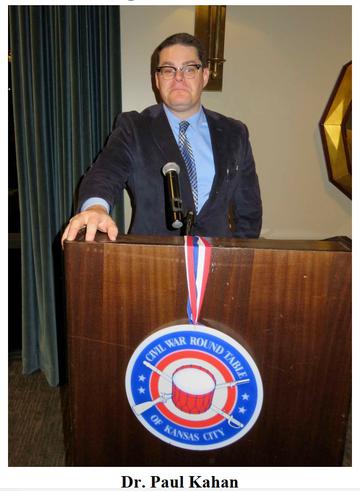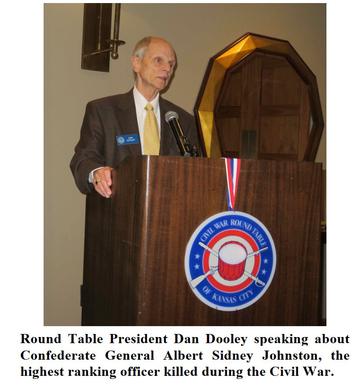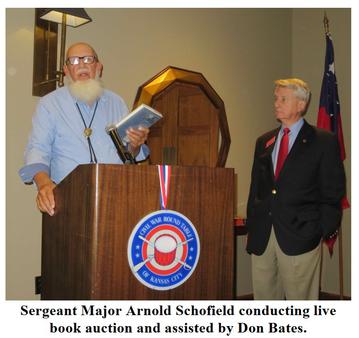October 2021 Meeting

The following are some key points made by Dr. Kahan during his presentation:
- On December 5, 1876, President Grant issued his eighth and final address to Congress, hi reviewing his tenure as president. Grant said: "Mistakes have been made, but the failures have been errors of judgment, and not of intent."
- There have been a lot of great books written about Grant recently. However, the authors typically give short shrift to Grant's presidency. Grant's memoirs ended in 1865 and did not cover his presidency or Reconstruction.
- Grant is typically viewed as a great Civil War general but a mediocre president, whose presidency was mrred by scandals.
- Grant was a veiy popular presidential candidate in 1868, but the south couldn't vote. The Republican Party was still coalescing. They had a shared hatred of slave power. The Republicans chose Grant as then candidate in response to Andrew Johnson's policies.
- As president. Grant saw himself as protecting and preserving the sacrifices that his men made on the battlefield. Grant still saw himself as a general.
- Grant suffered from self-delusion. He believed that he could be above politics and the presidency was a non-political position. However, the presidency is a political office.
- Grant wanted to do big things while he was in office: finish Reconstruction, improve relations with Native Americans, and improve relations with Great Britain (who sold ships to the Confederacy during the Civil War).
- The 1871 Treaty of Washington was ratified in order to resolve issues with Great Britain. This laid the groundwork for international arbitration. The Department of Justice was created in order to destroy the KKK. This was an aggressive use of Federal power.
- Grant alienated Charles Sumner, who was a passionate advocate for abolitionism. Sumner thought he was the moral core of the Republican Party. However, Grant knew that Sumner wouldn't do what he wanted him to, so Grant replaced Sumner on the Foreign Relations Committee with Simon Cameron. This was a brutal political move. Sumner was furious.
- Grant had to deal with the Panic of 1873, which was a financial crisis. The Panic was caused by the demonetization of silver. Silver miners couldn't sell their silver and the railroads couldn't charge money to transport the silver. Railroad bonds dropped in value. Congress screwed up the economy. This caused a depression that was worse than the depression of the 1930's. Twenty-five percent of the workers were out of work.
- In 1874, the Democrats won control of the House for the first time since 1860. The Democrats had investigative powers, which eroded support for president Grant. The Democrats did this by drips: a scandal here and a scandal there. Grant didn't want to believe that he had been poorly served by his supporters. Grant left the presidency under a cloud of scandal.
- In 1885 Grant wrote his memoirs. Civil War veterans began having reunions in the late 1800's. The reunions attempted to obscure the definition of what the Civil War was all about. If the war was about slavery, it made for a difficult reconciliation.
- Some thought Reconstruction was a mistake, that Blacks were not ready for self-government. However, Reconstruction led to incredible advances for Blacks. Grant was blamed for the advances made during Reconstruction. Then during the Civil Rights movement in the 1960's, Grant was blamed because Reconstruction did not go far enough.
- Grant's private papers were not published until the 1960's. However, other key people's private papers were published much earlier. Grant's enemies wrote about how bad Grant was. In the late 1900's people started writing books about Grant. Blank spaces were filled in with what we thought we knew about Grant.
- In conclusion, Dr. Kahan said Grant was not an Abraham Lincoln, but he was not as bad as James Buchanan.
A couple of other photos from our October meeting.


|
| |